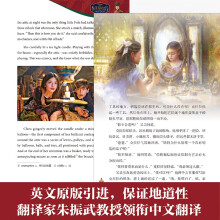










Just three hundred and forty-eight years, six months, and nineteen days ago today Parisians woke to the sound of all the bells pealing out within the triple precinct of City, University, and Town.
The sixth of January 1482 is not, however, a day commemorated by history. There was nothing very special about the event which thus launched the bells and the people of Paris into movement from early in the morning. It was not an attack by Picards or Burgundians, not a procession of relics, not a student revolt in the Laas vineyard, not 'our aforesaid most dread sovereign Lord the King' making his entry, not even the fine spectacle of men and women being hanged for robbery at the Palais de Justice in Paris. Nor was it the arrival of some embassy, a frequent occurrence in the fifteenth century, all bedizened and plumed. It was hardly two days since the last cavalcade of that kind, the Flemish embassy sent to conclude the marriage of the Dauphin and Marguerite of Flanders, had entered Paris, much to the annoyance of the Cardinal de Bourbon, who, to please the King, had had to put on a welcoming smile for this rustic bunch of Flemish burgomasters and treat them, in his Hotel de Bourbon, to 'a very fine morality, satire, and farce', while torrential rain soaked the magnificent tapestries hung at his door.
What, in the words of Jean de Troyes,* 'excited all the people of Paris' on 6 January was the twofold celebration, combined since time immemorial, of the Feast of the Epiphany and the Feast of Fools.
That day there was to be a bonfire on the Place de Greve, a maypole set up at the chapel of Braque, and a mystery I4 Book One play at the Palaia de Justice. The news had been publicly proclaimed with trumpet calls at all the crossroads by the Provost's men, in their handsome tunics of purple camlet, with big white crosses on the front.
From early morning the crowd of townsfolk, men and women, had begun to come in from ·all directions, leaving houses and shops closed up, malting their way towards one of the three appointed places. Everyone had made a choice, some for the bonfire, some for the maypole, some for the mystery. It must be said, in praise of the age-old good sense of curious Parisians, that the majority of this crowd was making for the bonfire, which came very seasonably, or the mystery, to be performed in the sheltered and enclosed Great Hall of the Palaia, and that, by common consent, the curious left the poor maypole, with its scanty garlands, to shiver all alone under the January sky in the cemetery of the chapel of Braque.
The flood of people was particularly dense in the roads leading to the Palaia de Justice, because it was known that the Flemish ambassadon, who had arrived two days earlier, intended to be present at the performance of the mystery play and the election of the Pope of Fools, which was also to take place in the Great Hall.
It was no easy matter that day to gain admission to the Great Hall, though at the time it was reputed to be the largest enclosed and covered space in the world. (It is true that Sauval had not yet measured the great hall of the castle at Montargis.) To onlookers watching from their windows the Place du Palais, blocked with people, presented the appearance of a vast sea into which a dozen streets, like so many river mouths, continually disgorged fresh streams of heads. The waves of this human flood, constantly spreading, broke against the comers of houses projecting here and there like headlands into the irregular basin formed by the Place.
Introduction
Note on the Text
Select Bibliography
A Chronology of Victor Hugo
Notre-Dame de Paris
Note on Money
Explanatory Notes
温馨提示:请使用长沙图书馆的读者帐号和密码进行登录
在文学界和艺术界的所有伟人中,雨果是wei一活在法西兰人民心中的伟人。
——罗曼·罗兰
他教导所有的人要热爱生活,热爱美,热爱真理,也热爱法西兰。
——高尔基